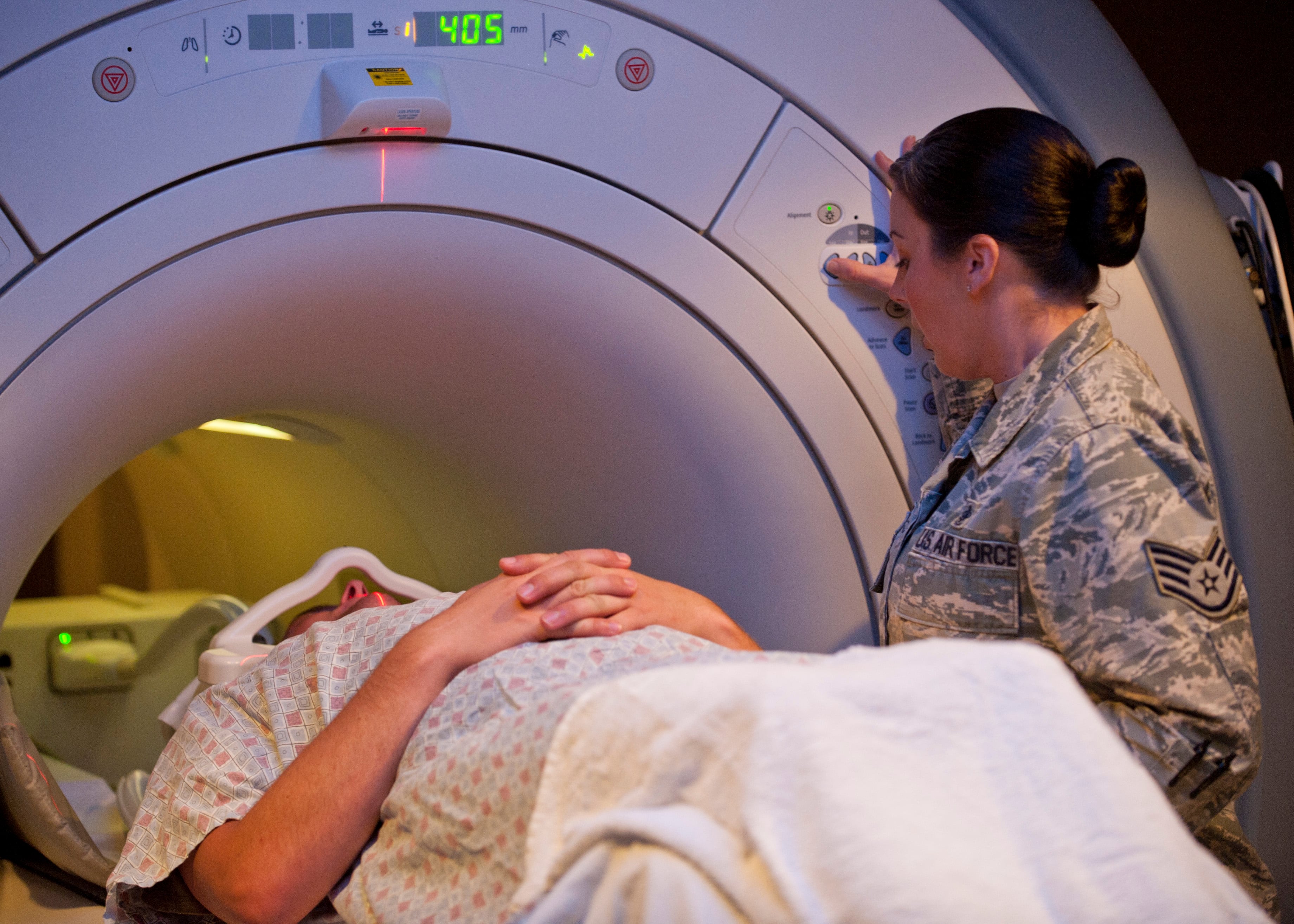One of the main hurdles to diagnosing long-term damage caused by mild brain injuries is the fact MRI devices currently used in hospitals can’t see the tiny changes that big jolts make in the brain. General Electric thinks it may have developed a special coil that can quadruple the detail of an MRI scan.
To test it, GE wants to scan the brains of 120 service members, in hopes of developing a sort of mild TBI blueprint that can help doctors diagnose these injuries more easily.
“If we can dramatically improve the performance on the MRI scanner without significantly changing the power we need to drive it, that would be a major advantage," Thomas Foo, GE’s chief scientist of biology and applied physics, told Military Times on Tuesday. "If we can actually use that to look at traumatic brain injury biomarkers in a manner that could not be done previously, this would be a significant advancement.”
Experts have long believed that repeated concussions have lasting effects on brain structure and functioning, but there isn’t a way to truly diagnose something like chronic traumatic encephalopathy ― made famous by research on the brains of deceased former professional football players ― in a living person, because an MRI can’t detect it.
GE’s MAGNUS coil, inserted in a clinical MRI scanner, is theoretically sensitive enough to detect disruptions in a brain and give doctors an image to work with.
It’s about four times more powerful than existing MRI technology, Foo said, and upgrading existing machines amounts to just replacing a part.
“If we are successful, what we hope to be able to do is to have this device be more accessible to everybody,” Foo said.
For now, though, the study is focusing on service members, with a five-year, $5.56 million grant from the Congressionally Directed Medical Research Program.
“That was an area that we thought it could make an impact,” he said
While traumatic brain injuries have long been a focus of military medicine, the slow-burning, insidious mild variety has recently gotten more attention.
In 2018, the Center for a New American Security released a report suggesting that relatively small, repeated blasts from shoulder-fired weapons ― like the Carl Gustaf recoilless rifle or M72 light anti-tank weapon ― could result in progressive, mild brain injuries that have the same kinds of behavioral and emotional impact as repeated concussions or an IED blast.
RELATED

“Who is going to look at those warriors after they’ve been exposed to that constant pounding and blasts?” now-retired Command Sgt. Maj. John Troxell told Military Times last year, as he wrapped up his role as senior enlisted adviser to the chairman of the Joint Chiefs of Staff. “And then, over the long haul … how does that morph and show up in the mental health aspect?”
Earlier this year, 109 American troops were diagnosed with mild TBI after an Iranian missile attack on al-Asad air base in Iraq.
The research plan
Study participants will be divided into three, 40-person groups: A control group with no history of TBI; a chronic group of those who have documented injuries; and another group of new patients ― those who have suffered a concussion or other brain trauma within the previous 72 hours.
It will take longer to recruit that last group, Foo said, because they will have limited patients to pull from. In the National Capital Region, it’s most likely those candidates will have hurt themselves playing sports, or perhaps in a vehicle collision.
With Marine Corps Base Quantico in northern Virginia, there’s also the possibility of officer candidates coming in with training injuries.
Providers can refer their patients to the program, but Woo said there will also be advertising in clinics and hospitals for participants to reach out on their own.
It’s his understanding that treatment centers in the Washington, D.C. area get two or three mild TBI cases a week, he said, which will be enough of a pool to recruit from.
The study is expected to last about a year and a half, with the first year dedicated to recruiting subjects and the following six months to analyze the data. Researchers will compare the new data to what GE gathered from its Head Health Initiative, a collaboration with the National Football League.
The team will work out of the Uniformed Services University of Health Sciences in Bethesda, Maryland. Once complete, Foo said, the plan is to present research at the annual Military Health System Research Symposium and similar professional forums.
If you’re a service member in the National Capital Region interested in volunteering for the study, contact research coordinator Kimberly Greenfield at kgreenfield@genevausa.org.
Meghann Myers is the Pentagon bureau chief at Military Times. She covers operations, policy, personnel, leadership and other issues affecting service members.





